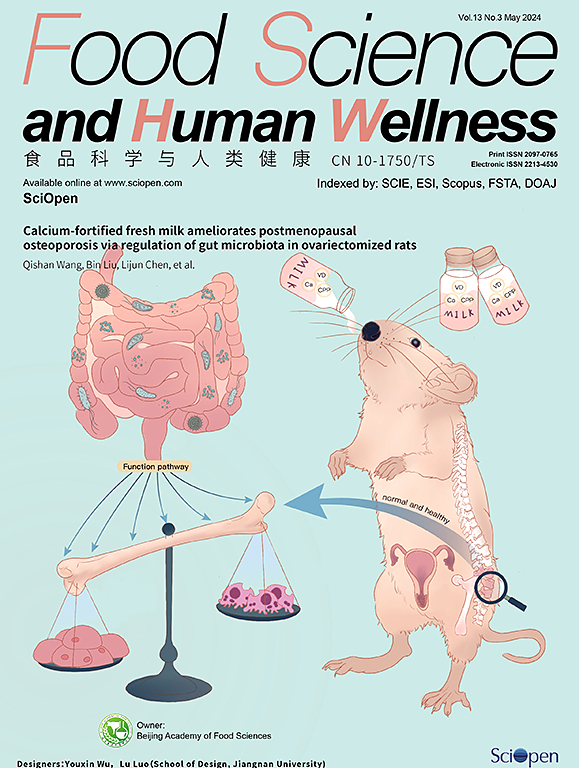Association of moderate beer consumption with the gut microbiota
IF 7.4
1区 农林科学
Q1 FOOD SCIENCE & TECHNOLOGY
引用次数: 0
Abstract
Beer is a fermented beverage prepared from water, malted barley, hops, and yeast that has been around for centuries. Alcoholic beverages alter the composition of the gut microbiota, which in turn causes oxidative stress brought on by alcohol, increases intestinal permeability to luminal bacterial products. However, beer has been shown to contain several intriguing non-alcoholic chemicals. Recent research demonstrates that moderate beer drinking could have positive impacts on human health. Beer's non-alcoholic ingredients have a significant impact on gut microbiota, and this type of diet is known to modulate gut microbiota, which has a variety of effects on the body, including effects on intestinal permeability, mucosal immune function, intestinal motility, antioxidant activity, and anti-inflammatory activity. Although the negative consequences of excessive alcohol intake are widely known, it is still debatable whether or not some non-alcoholic components, such as polyphenols and carbohydrates, have any positive benefits. In this review, we explain the primary benefits of moderate beer consumption on the gut microbiota, which are mostly attributable to non-alcoholic components such polyphenols. Despite any potential advantages of moderating consumption of alcoholic beverages, the lowest alcohol intake is the most secure.
适量饮用啤酒与肠道微生物群的关系
啤酒是一种由水、麦芽、啤酒花和酵母制成的发酵饮料,已经存在了几个世纪。酒精饮料会改变肠道微生物群的组成,从而导致酒精引起的氧化应激,增加肠道对肠道细菌产物的渗透性。然而,啤酒已被证明含有几种有趣的非酒精化学物质。最近的研究表明,适量饮用啤酒可能对人体健康有积极影响。啤酒的非酒精成分对肠道微生物群有显著的影响,这种类型的饮食被认为可以调节肠道微生物群,这对身体有多种影响,包括对肠道通透性、粘膜免疫功能、肠道动力、抗氧化活性和抗炎活性的影响。虽然过量饮酒的负面影响众所周知,但一些非酒精成分,如多酚和碳水化合物,是否有任何积极的好处,仍然存在争议。在这篇综述中,我们解释了适度饮用啤酒对肠道微生物群的主要益处,这主要归因于非酒精成分,如多酚。尽管适度饮酒有潜在的好处,但最低的酒精摄入量是最安全的。
本文章由计算机程序翻译,如有差异,请以英文原文为准。
求助全文
约1分钟内获得全文
求助全文
来源期刊

Food Science and Human Wellness
Agricultural and Biological Sciences-Food Science
CiteScore
8.30
自引率
5.70%
发文量
80
审稿时长
28 days
期刊介绍:
Food Science and Human Wellness is an international peer-reviewed journal that provides a forum for the dissemination of the latest scientific results in food science, nutriology, immunology and cross-field research. Articles must present information that is novel, has high impact and interest, and is of high scientific quality. By their effort, it has been developed to promote the public awareness on diet, advocate healthy diet, reduce the harm caused by unreasonable dietary habit, and directs healthy food development for food industrial producers.
 求助内容:
求助内容: 应助结果提醒方式:
应助结果提醒方式:


